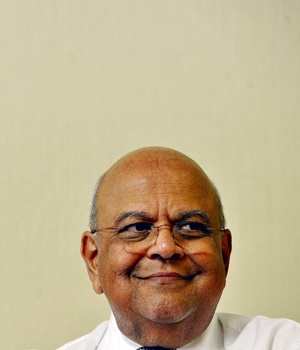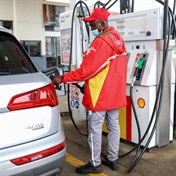
Neither the executive nor Treasury has fully embraced options to austerity, writes Dick Forslund
The budget speech today is, undoubtedly, going to be the most challenging for “new” Finance Minister Pravin Gordhan.
The president’s state of the nation address set the tone by, yet again, assuring South Africans that government has undertaken to “spend public funds wisely and to cut wasteful expenditure”.
Importantly for Gordhan, the president affirmed that the main alliance in the country would be saved – the alliance between business and government.
There were hints in the medium-term budget policy statement last year, and in the media this year, on what can be expected from the budget speech. Beyond the symbolic acts of reigning in government spending and calling on ministers to travel economy class, there will be continued budget cuts to reduce the budget deficit from 3.8% to 3% of GDP.
There have also been rumours of an increase in VAT from 14% to 15%, or even 16%, with every percentage point supposedly adding R15 billion to the budget.
To date, government and Treasury have been unfailing in their obsession with austerity and balancing the budget at the expense of higher household debt, fewer services and ever-increasing unemployment and corruption. At the heart of the rhetoric behind the “hard budget choices” that Gordhan will present is that “there is no alternative”.
On the contrary, there are many options, and Treasury and the executive have a range of choices regarding how government spends taxes, regulates and provides services, rebuilds fiscal capacity and ensures that social spending is equitably distributed.
Sadly, neither the executive nor Treasury has fully embraced these options, and the crisis in higher education is just one example.
In higher education, an austerity regime has, in fact, been in place since at least 2011. While there have been shifts in allocations within the higher education budget, there have been no overall increases, in real terms, to address growing demand, so it should have come as no surprise that cuts in university subsidies provoked students to rise up and demand free education.
However, given the government’s current priorities, it is clear that this demand is incompatible with cost-containment plans.
To understand the squeeze on higher education, you have to know the real cost of providing it. Stats SA’s inflation index for higher education is the best mechanism we have for ascertaining this cost. If you use the consumer price index (CPI), as Treasury often does, spending on higher education per student would have gone up by 15% between 2011 and 2015.
However, the costs involved in delivering higher education have, for many years, been close to double the usual CPI, hovering at around 9% of the average price increase per year. This means that in February 2015, there was a 15% decrease in allocation of real resources per student between 2011 and 2015, and not an increase. These cuts in funding forced universities to offset increased costs by increasing their fees.
It is clear that the demands on the government go beyond higher education to other sectors. It is for this reason that the government has to do much more than cut programmes and taxes.
It is time that Gordhan, on behalf of the executive, present an alternative budget.
To start with, this alternative budget would scrap the plan to cut the budget deficit from 3.8% to 3% of GDP.
The government should turn away from the “free” financial markets for its borrowing needs and to the huge public sector pension fund, which it controls and can borrow from at a lower interest rate. If Gordhan provides the necessary political will, every decrease of the average interest rate by 0.5 percentage points on the government debt would save R11 billion to R13 billion per year.
Furthermore, the surplus of close to R100 billion in the Unemployment Insurance Fund can, and should, be used for mass public works programmes that would tackle the problem of unemployment.
A progressive government cannot provoke the workers and the poor by increasing VAT when they already face high food prices. Fifteen years of cuts in personal income tax has been a failure and government should be open and transparent about the effect this policy has had on service delivery before turning to a regressive tax such as VAT.
Without annual political tax cuts, personal income tax would today give more than R180 billion to the public purse. At the current rate of tax-dodging among the rich, a new tax bracket for income above R1 million would supply more than R5 billion in revenue, not to mention the billions that could be raised by addressing corporate tax avoidance.
These recommendations are just the beginning. Where there is political will, there are options to austerity. It is time to replace the alliance between government and big business with one that is made up of the workers and the poor, and let the new alliance guide economic policy.
Forslund is senior economist at the Alternative Information and Development Centre




 Publications
Publications
 Partners
Partners








